Save early for children’s education, or pay the price
by Andrew Gillingham,
2013-07-22 10:24:20.0
THE rising cost of education — well over the consumer price index — can have a significant impact on even a wealthy family’s cash flow. However, good preparation can lessen the effect it has and ensure there is sufficient cash on hand.
Wanita Isaacs, business analyst at Allan Gray, says that according to Statistics SA over the past 15 years the cost of education has been increasing almost 10% per year.
"If it now costs R45,000 per year to send a child to high school, this could escalate to R74,490 by the time your newborn child is ready to attend.
"Education inflation is about 4% higher than the general inflation rate. Unless your salary increases by at least 10% per year as well, as time goes by it will get increasingly harder to make space in your budget for school fees."
Allan Gray analysed the cost of financing education for a single child from pre-school through to tertiary education and found that if all the fees were paid from a parent’s salary, the total cost could end up being almost R2,4m.
However, if parents started investing R3,500 per month at the birth of the child, and used the investment to fund all of the fees, the impact on that parent’s budget would be 29% lower. This is assuming an investment return of 3% above inflation.
"Although this requires contributing a meaningful percentage of your salary at a time when you have other financial pressures, tight budgeting upfront allows for predictability and cost saving in the future," says Ms Isaacs.
She points out that as with any investment plan, the sooner parents start putting money aside, the longer their money can work for them.
However, even if a child is already at school, investing now can still can still ease the burden of the more expensive later years of education.
"The growth you earn on an investment for the later schooling years also significantly lowers the impact of education costs on your budget, even if you miss the opportunity of starting your investment when your child is born.
"Even if you start your investment after your child starts school, and your investment only earns enough return to keep up with inflation, investing would lower the impact on your budget by 13%," says Ms Isaacs.
Moreover, she warns parents to avoid taking out a loan to finance education as while the power of compound interest works in parents’ favour when they invest, the same mechanism works against them when they borrow and makes credit the most expensive option.
Laurence Hillman, MD of 1Life, says the key to saving lies in managing oneself and one’s habits. "Starting early really helps so ideally people should start saving as soon as they know they have a baby on the way. In addition, those families planning a private school education should register their children at the same time.
"However, even when families plan to use the state school system, they would be wise to start saving early so they are able to afford fees, books and the unexpected extras."
Pieter Hugo, MD of Old Mutual Unit Trusts, says the cost of education has increased significantly, to the point where it will have an impact on even a wealthy family’s cash flow.
"These days a lot more children want to go to university. Moreover, as the job market becomes more demanding so a three-year degree has less weight and children need at least honours or some other postgraduate qualification," says Mr Hugo.
Further, he points out that the world is literally a global village and its workforce is also global. Therefore, many savvy youngsters realise that obtaining international qualifications not only makes them more marketable here in South Africa but gives them a lot more flexibility when it comes to considering overseas opportunities.
"Whether your child opts for distance learning or prefers to attend an overseas institution it adds another layer of cost that needs to be catered for in the family’s budget," says Mr Hugo.

Picture: THINKSTOCK
THE rising cost of education — well over the consumer price index — can have a significant impact on even a wealthy family’s cash flow. However, good preparation can lessen the effect it has and ensure there is sufficient cash on hand.
Wanita Isaacs, business analyst at Allan Gray, says that according to Statistics SA over the past 15 years the cost of education has been increasing almost 10% per year.
"If it now costs R45,000 per year to send a child to high school, this could escalate to R74,490 by the time your newborn child is ready to attend.
"Education inflation is about 4% higher than the general inflation rate. Unless your salary increases by at least 10% per year as well, as time goes by it will get increasingly harder to make space in your budget for school fees."
Allan Gray analysed the cost of financing education for a single child from pre-school through to tertiary education and found that if all the fees were paid from a parent’s salary, the total cost could end up being almost R2,4m.
However, if parents started investing R3,500 per month at the birth of the child, and used the investment to fund all of the fees, the impact on that parent’s budget would be 29% lower. This is assuming an investment return of 3% above inflation.
"Although this requires contributing a meaningful percentage of your salary at a time when you have other financial pressures, tight budgeting upfront allows for predictability and cost saving in the future," says Ms Isaacs.
She points out that as with any investment plan, the sooner parents start putting money aside, the longer their money can work for them.
However, even if a child is already at school, investing now can still can still ease the burden of the more expensive later years of education.
"The growth you earn on an investment for the later schooling years also significantly lowers the impact of education costs on your budget, even if you miss the opportunity of starting your investment when your child is born.
"Even if you start your investment after your child starts school, and your investment only earns enough return to keep up with inflation, investing would lower the impact on your budget by 13%," says Ms Isaacs.
Moreover, she warns parents to avoid taking out a loan to finance education as while the power of compound interest works in parents’ favour when they invest, the same mechanism works against them when they borrow and makes credit the most expensive option.
Laurence Hillman, MD of 1Life, says the key to saving lies in managing oneself and one’s habits. "Starting early really helps so ideally people should start saving as soon as they know they have a baby on the way. In addition, those families planning a private school education should register their children at the same time.
"However, even when families plan to use the state school system, they would be wise to start saving early so they are able to afford fees, books and the unexpected extras."
Pieter Hugo, MD of Old Mutual Unit Trusts, says the cost of education has increased significantly, to the point where it will have an impact on even a wealthy family’s cash flow.
"These days a lot more children want to go to university. Moreover, as the job market becomes more demanding so a three-year degree has less weight and children need at least honours or some other postgraduate qualification," says Mr Hugo.
Further, he points out that the world is literally a global village and its workforce is also global. Therefore, many savvy youngsters realise that obtaining international qualifications not only makes them more marketable here in South Africa but gives them a lot more flexibility when it comes to considering overseas opportunities.
"Whether your child opts for distance learning or prefers to attend an overseas institution it adds another layer of cost that needs to be catered for in the family’s budget," says Mr Hugo.


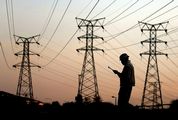


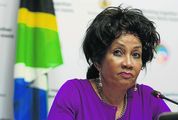



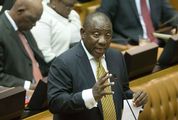
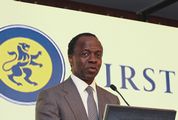
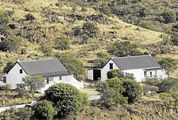









Register/Login
Close XMy News
You can only set up or view personalised news headlines when you are logged in as a registered user. Thereafter you can choose the sectors of industry in which you are interested, and the latest articles from those sectors will display in this area of your console.
Login or Register.Top Stories
My Watchlist
You can only set up or view your share watchlist when you are logged in as a registered user. Thereafter you can select a list of companies and enter your share details to monitor their performance.
Login or Register.My Clippings
You can only clip articles when you are logged in as a registered user. Thereafter you can click on the "Read later" icon at the top of an article to save it to this area of your console, where you can return to read it at any time.
Login or Register.Change: -1.21%
Change: -1.31%
Change: -1.11%
Change: -1.12%
Change: -2.16%
Data supplied by Profile Data
Change: 0.00%
Change: 0.00%
Change: -1.21%
Change: 0.00%
Change: 0.00%
Data supplied by Profile Data
Change: -0.41%
Change: -0.29%
Change: -0.33%
Change: -0.45%
Change: -0.19%
Data supplied by Profile Data
Change: 0.00%
Change: 0.00%
Change: 0.00%
Change: 0.00%
Change: 0.00%
Data supplied by Profile Data